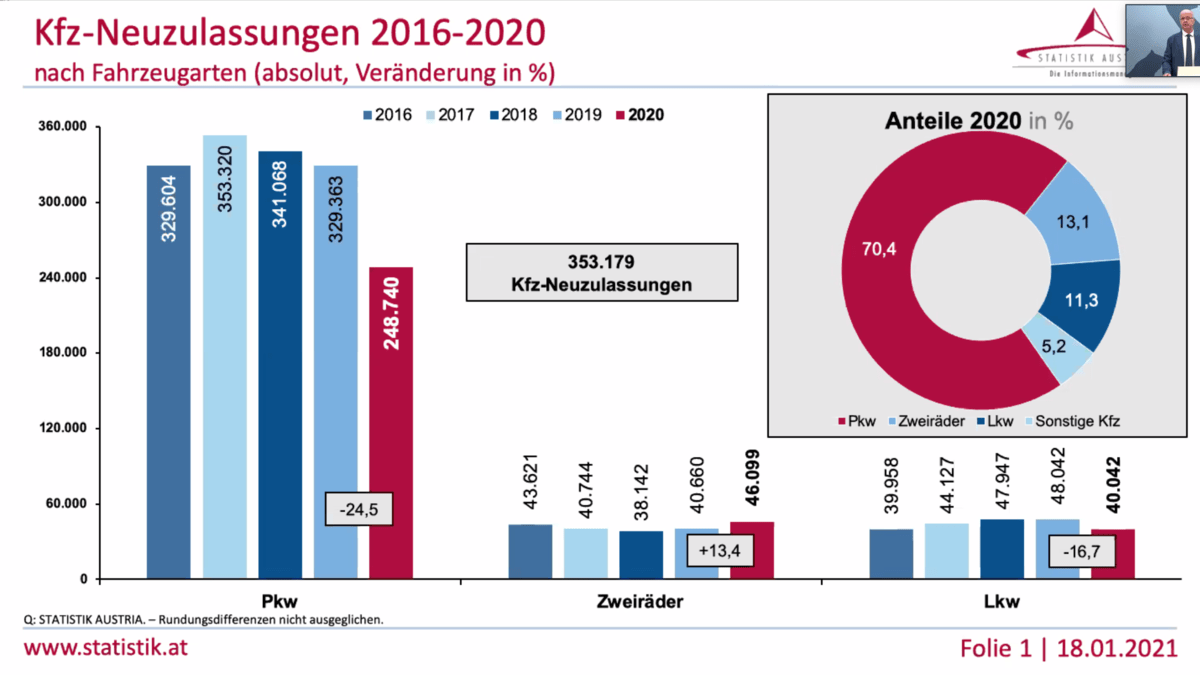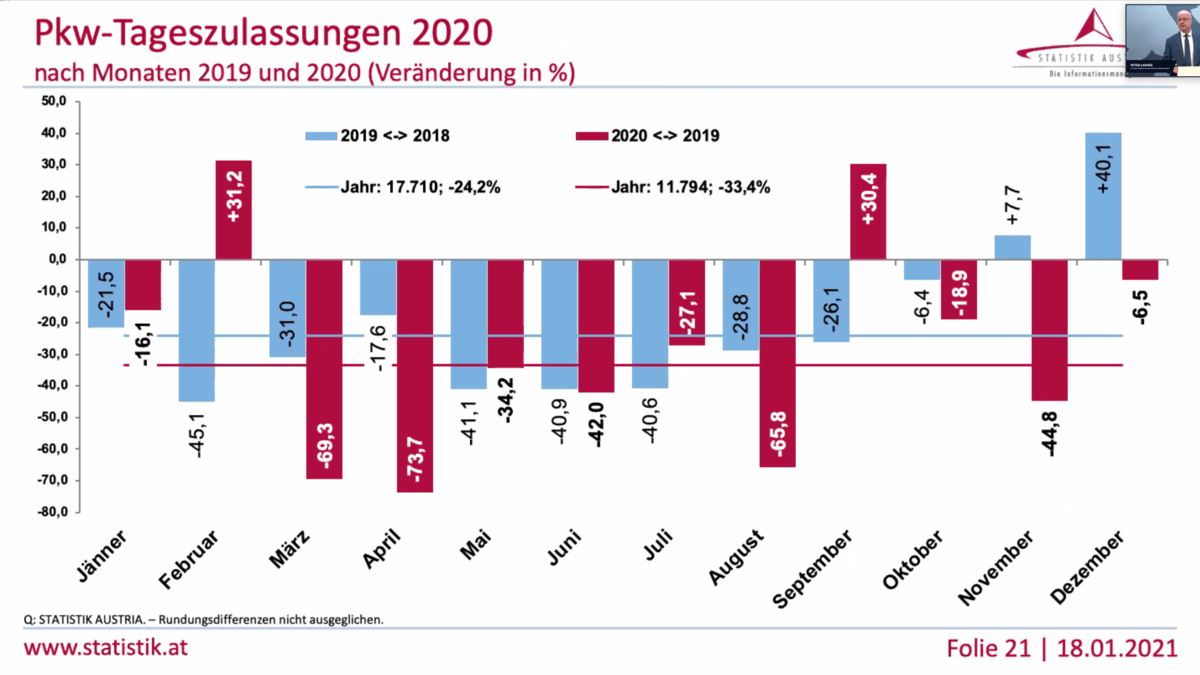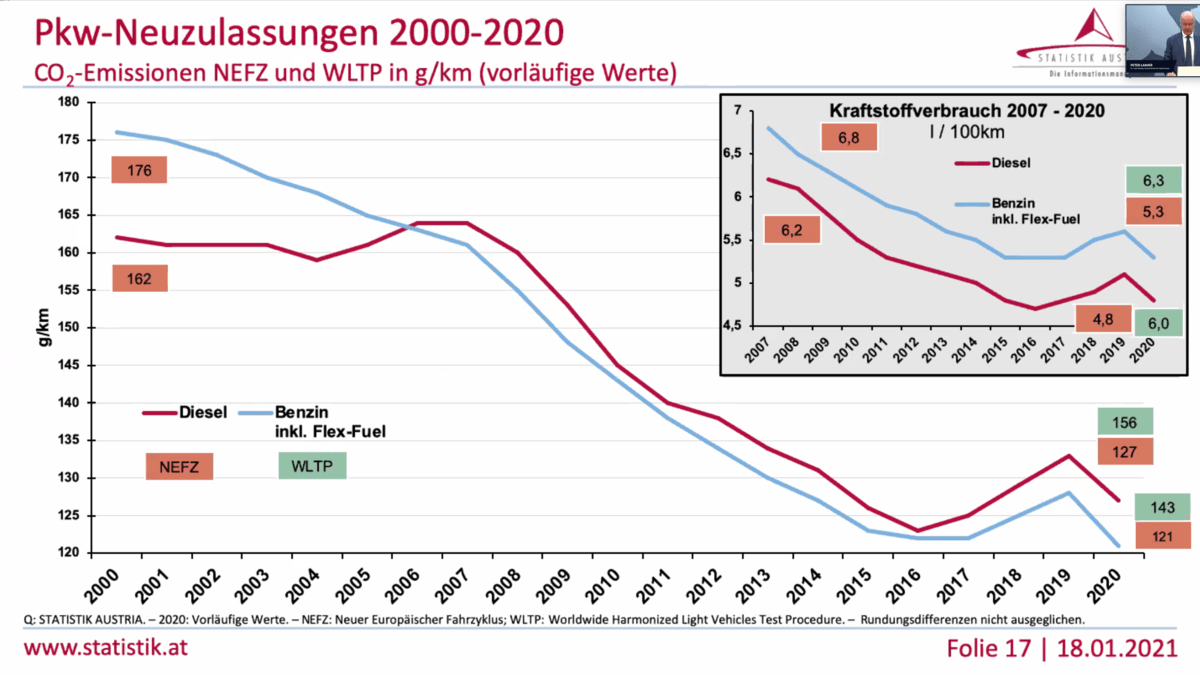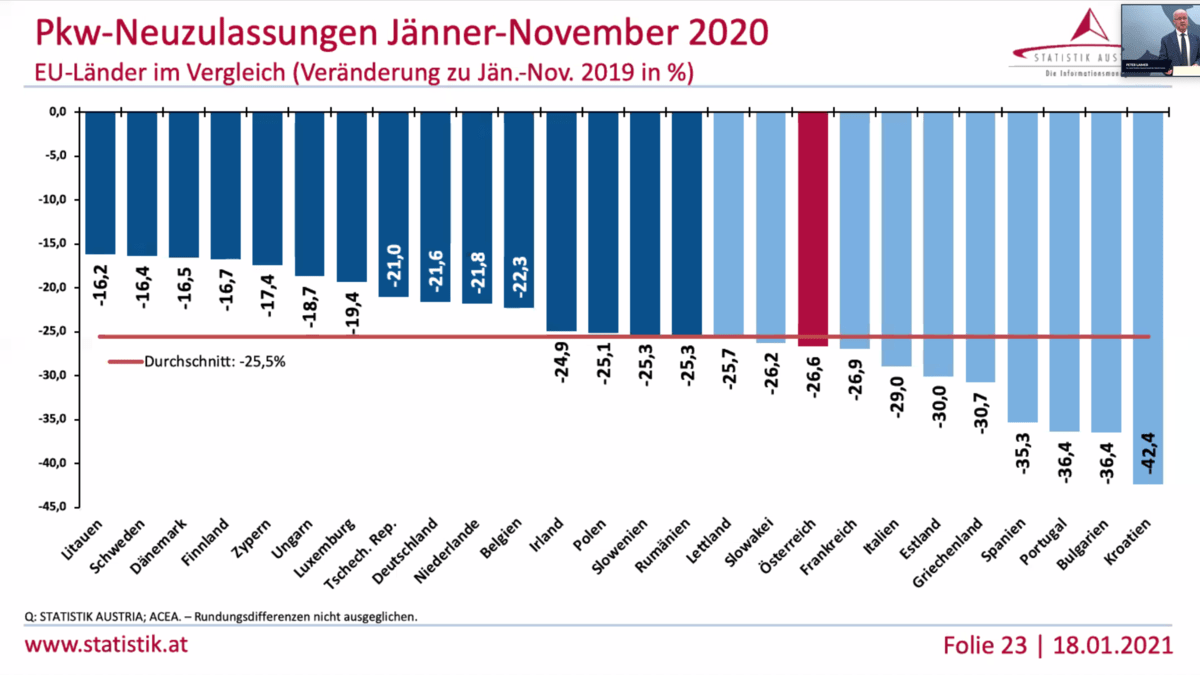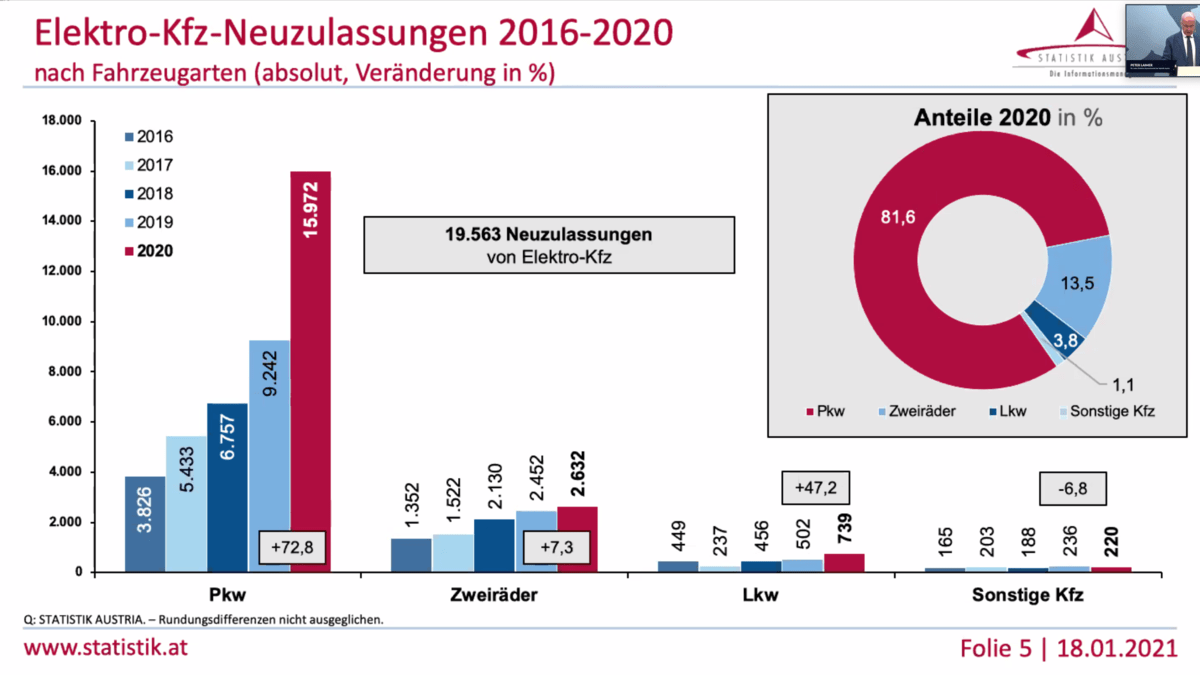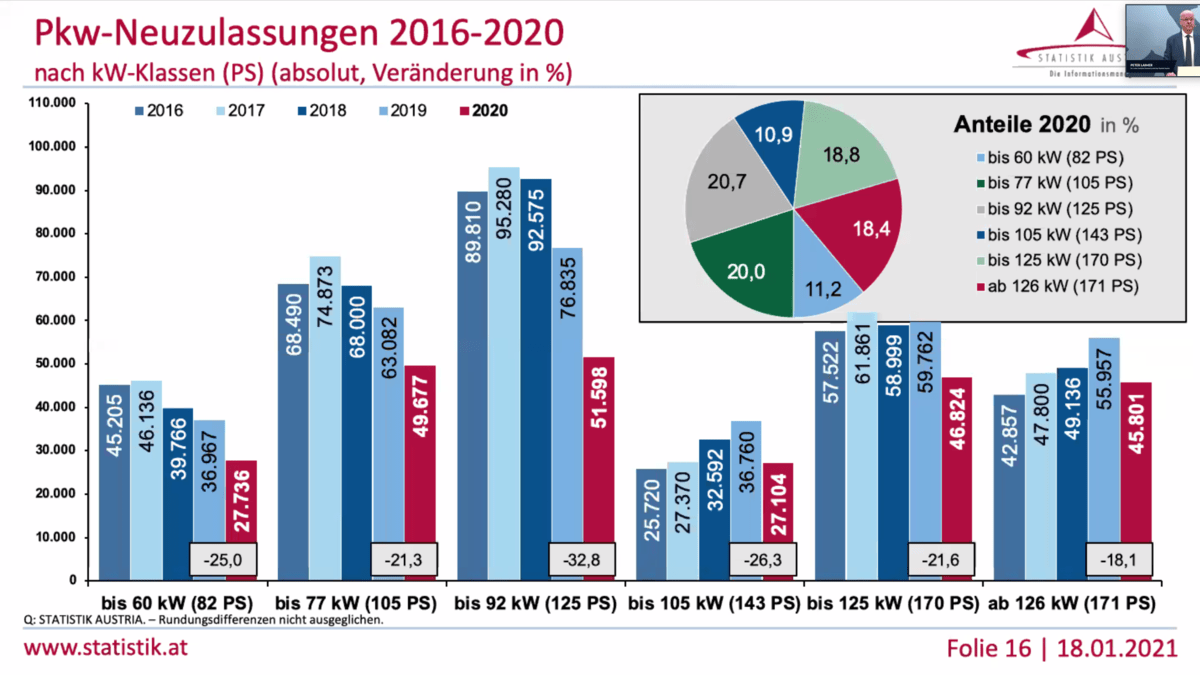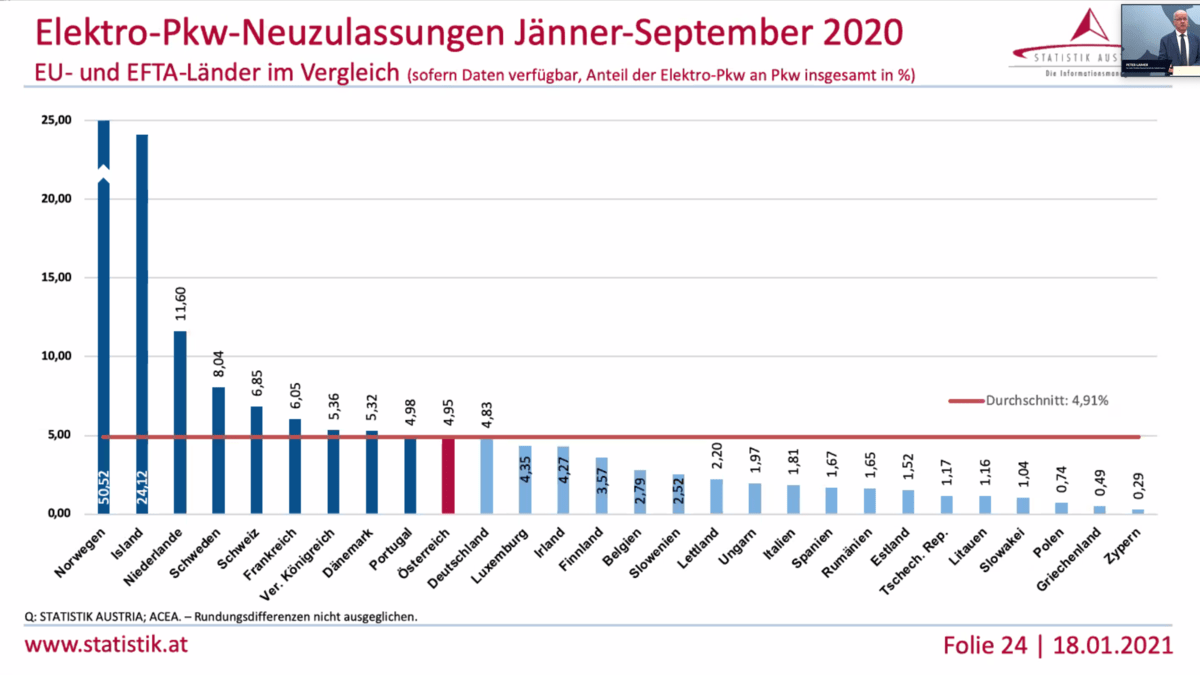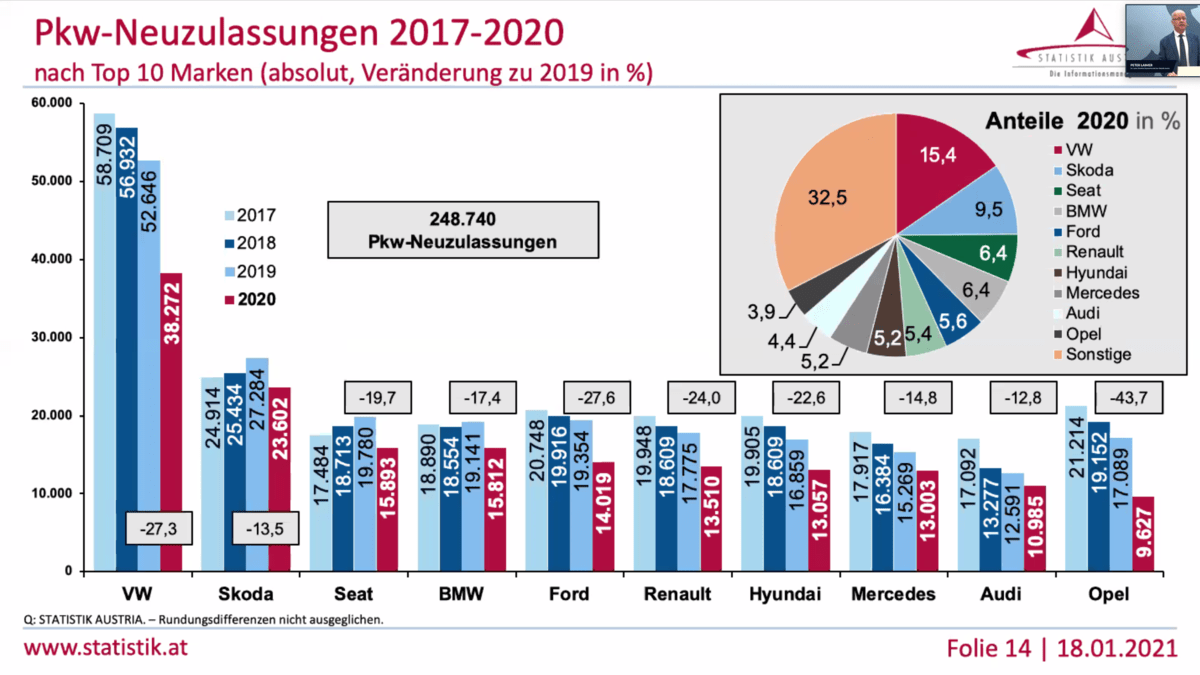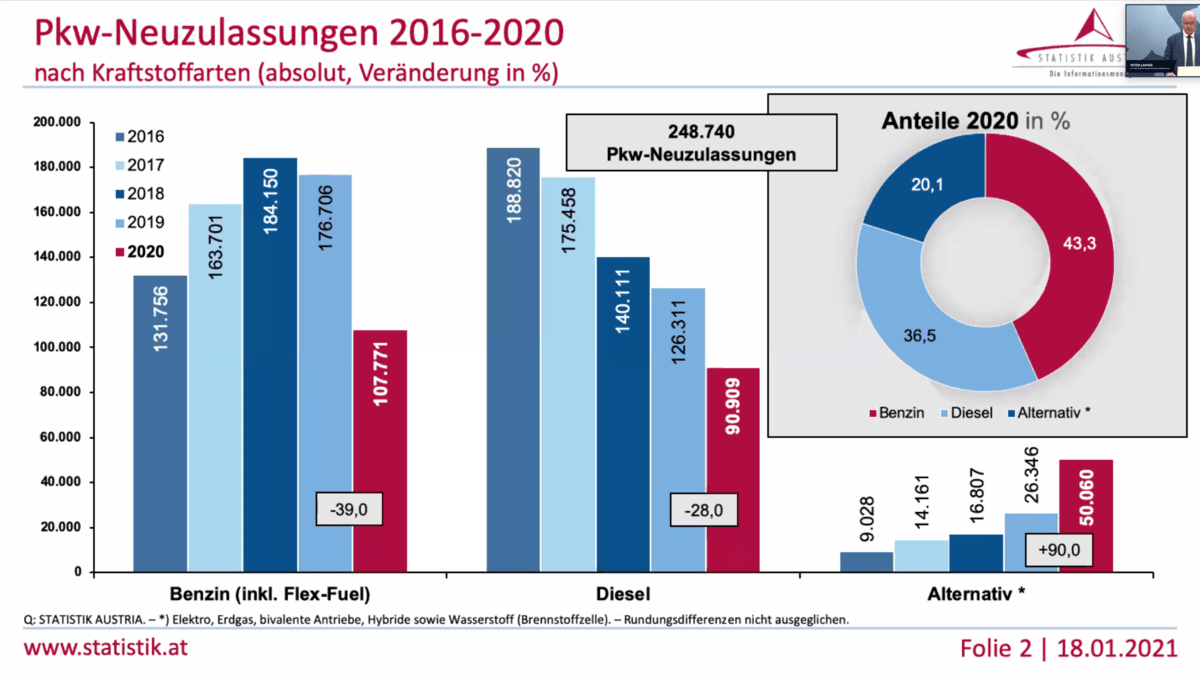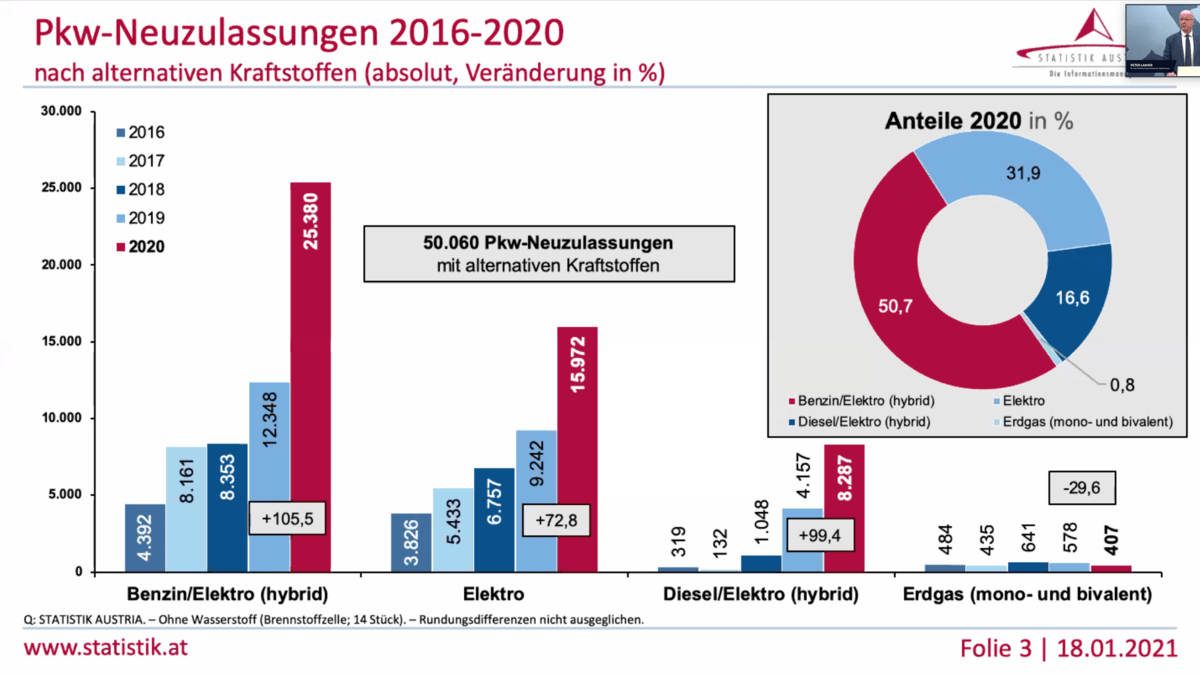The worst car year in 33 years
The car year 2020 was dark. The corona pandemic, tax increases and lockdowns have damaged trade and had a dramatic impact on automobile importers. One number clearly shows how deep the fall was.
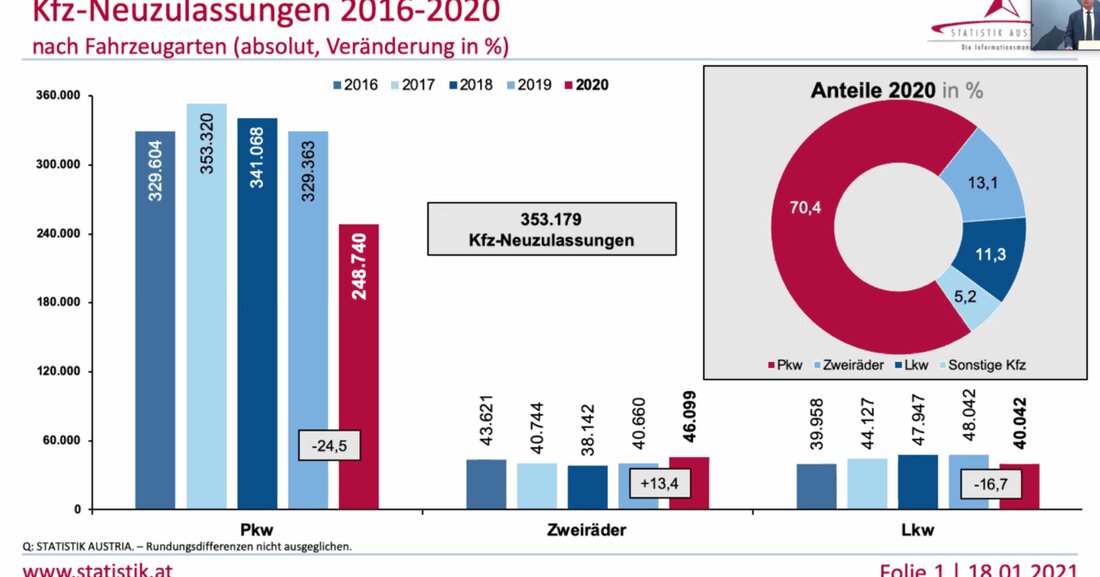
The worst car year in 33 years
The year 2020 is history. And from the perspective of the domestic automotive industry, one can only say: we are happy about it. “It was the worst car year in 33 years,” says Günther Kerle, spokesman for the Austrian automobile importers, at a digital press conference that traditionally marks the start of the Vienna Autoshow. Above all, it is a number that makes it clear how dramatic 2020 was for the domestic automotive industry: -24.5 percent in new car registrations. In absolute numbers: only 248,740 pieces. For comparison: in 2017 there were 353,320 units.
Peter Laimer, deputy head of the Spatial Economics Directorate at Statistics Austria, presents the figures with his usual sobriety. Because: There are also winners in the crisis year of 2020 - namely vehicles with alternative drives and two-wheelers. Two-wheelers increased by another 13.4 percent compared to the good previous year and recorded 46,099 new registrations in 2020. The best two-wheeler year in history was 2008 - there were just over 53,000 new registrations. Trucks (trucks) also recorded a decline of 16.7 percent compared to 2019.
The winners: alternative drives
“The winners in the crisis were those models with alternative drives,” says Laimer, referring to new car registrations by fuel type. Gasoline engines recorded a loss of 39.0 percent. Diesel -28.0 percent. Models with alternative drives increased by 90 percent in 2019. This increases the share of alternative drives to 20.1 percent (in 2020), diesel accounts for 36.5 percent and gasoline 43.3 percent.
The situation is serious
Günther Kerle doesn't even try to sugarcoat the situation: "The situation has worsened. You have to blame the pandemic mainly, but not only. The closures of dealers and registration offices were just as to blame, as were the interrupted supply chains and production stops by the manufacturers. The permanent tax increases this year, in January, in April, in October and now for 2021 in the middle of December, are unsettling businesses and, of course, private buyers." Kerle insists that attempts will be made to stabilize the situation in 2021. Around 270,000 new car registrations seem realistic this year, although one can only estimate whether this is due to the pandemic. "In order to get the situation back under control, we now need three points. Firstly: no more new taxes. Secondly: we have to stimulate the market and create incentives. Thirdly: we need solidarity between politics and business again." Kerle is particularly critical of the introduction of NoVA for light commercial vehicles: “That doesn’t take us any further in terms of climate protection.”
Trade under pressure
Klaus Edelsbrunner, federal representative of the vehicle trade, sums up 2020 succinctly: “A disappointing year is coming to an end.” The two lockdowns in spring and autumn hit retailers particularly hard. “You can clearly see from the registration numbers of electric cars that sales are directly linked to subsidies.” For Edelsbrunner, the introduction of NoVA for light commercial vehicles in class N1 is particularly incomprehensible: "I would like to remind you: NoVA used to be the luxury tax. There is nothing luxury about a paneled van. These are tools for companies that use them to get their teams, tools and materials to the construction sites." Edelsbrunner emphasizes that the low sales figures would subsequently also mean lower capacity utilization for the dealers, which means there is a risk that employees could be lost. "I'm not very optimistic for the first quarter of 2021. Actually, everything we're currently planning and doing corresponds to coffee brewing," sighs the trade spokesman. There is minimal optimism when it comes to maintenance work on electric cars. When asked whether electric cars are bad for workshop profits, Edelsbrunner answers somewhat surprisingly: "E-cars are not bad for the maintenance business per se. The vehicles have tires, brakes, chassis and a bunch of driving assistance systems and comfort electronics that need to be maintained and updated regularly."

 Suche
Suche
 Mein Konto
Mein Konto

